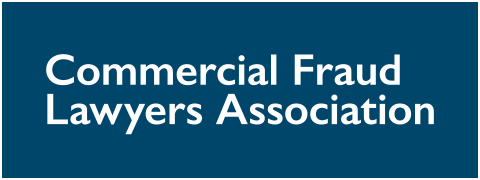Articles
Property Alliance Group v RBS (2018) EWCA Civ 355
Shail Patel discusses the Court of Appeal’s decision in Property Alliance Group v RBS (2018) EWCA Civ 355. The outcome is a decisive victory for RBS over PAG. However, the door has undoubtedly been opened for other potential claimants. While the CA also made some significant findings on the bank's advisory duties and implied contractual terms, this article focuses on LIBOR and benchmarks. Many negligence and contract claims arising out of swaps mis-selling are likely to be statute barred under the Limitation Act 1980.
Legal update - Bilta Ors v RBS Anor
Alan Sheeley discusses the law regarding the privileged status of investigations has been in flux since Serious Fraud Office (SFO) v Eurasian Natural Resources Corporation Ltd (2017) EWHC 1017 (QB) (“ENRC”) was handed down in May 2017. The recent decision of Bilta & Ors v RBS & Anor (2017) EWHC 3535 (Ch) (“Bilta”), in which Pinsent Masons acted on behalf of RBS, is therefore an important decision as it confirms that ENRC is not a determinative statement of principle as privilege can apply to investigations on the right set of facts.
Blockchain and ICOs
Jane Colston speaks to CDR about the importance of asking defendants to disclose virtual currencies, like Bitcoin, in freezing, disclosure or search orders. CDR also reported on Michael Booth QC's recent talk to the CFLA about the role of technology in fraud investigations. First published in: www.cdr-news.com
Artificial Intelligence: Change before you have to
Jane Colston and Louise Verrill of Brown Rudnick LLP report on the use of Artificial Intelligence in the insolvency profession. This article was originally published by Eurofenix
First ever search order against a third party granted: the Chabra moment for search orders
Trevor Mascarenhas and Jon Felce of PCB Litigation LLP consider Abela and others v Baadarani (Third Party: Fakih) [2017] EWHC 269 (Ch), where a search order was granted against a third party.
Notification Injunction: Belgravia, Boats and Bootstraps
Jane Colston and Roger Kennell of Brown Rudnick LLP consider Holyoake v Candy [2016] EWHC 970 (Ch) in which the Chancery Division granted a “notification injunction” requiring subsequent disclosure of the disposal of property assets rather than a full freezing order preventing their disposal in the first place. The decision raises interesting questions about what must be shown by a claimant to get such an injunction, whether risk of dissipation should be proven to a lower standard for the lesser remedy, and whether fortification of the undertaking in damages by the claimant is required.
A big step forwards for backwards tracing
Alan Sheeley and Craig Connal QC of Pinsent Masons LLP review a recent Privy Council ruling that relaxes the restrictions on recovering fraudulent payments through backwards tracing. This article was first published in the Trust Quarterly Review, Volume 13, Issue 4 2015.
Fraud and Related Bars to Enforcement of Foreign Judgments
Clive Freedman QC of 7 King’s Bench Walk examines various bars to the enforcement or recognition of judgments based upon fraud, public policy, breaches of natural justice, and judgments amounting to penalties.
Fraudulent Directors and the Impact on Companies: Victims or Wrongdoers?
Alan Sheeley and Mehmet Karagoz of Pinsent Masons LLP analyse the recent UK Supreme Court decision in Jetivia SA and another v. Bilta (UK) Ltd (in liquidation) and Others [2015] UKSC 23, in which it was decided that a company can pursue a claim against its directors for a breach of duty and that it will not be prevented from doing so by the illegality defence on the basis that the knowledge of the directors is not attributed to the company.
Does Lord Make a Difference?
Anthony Edwards and Matthew Hardcastle of TV Edwards consider the practical impact of the judgment in R (Lord) v SFO [2015] EWHC 865 (Admin), which concerned the legality of the Serious Fraud Office’s decision to deny the attendance of a specific firm of solicitors to a compulsory interview held under s. 2 Criminal Justice Act 1987 in circumstances where the interviewees chose to be represented by the same firm of solicitors acting for their corporate employer.
We welcome all contributions, short or long, in relation to recent developments in commercial fraud and any other topics that may be of interest to members.
If you would like to submit an article, please email Charles Thomson.

